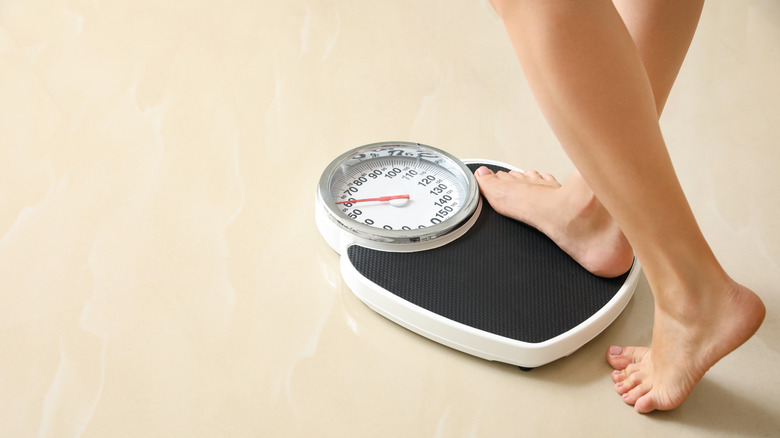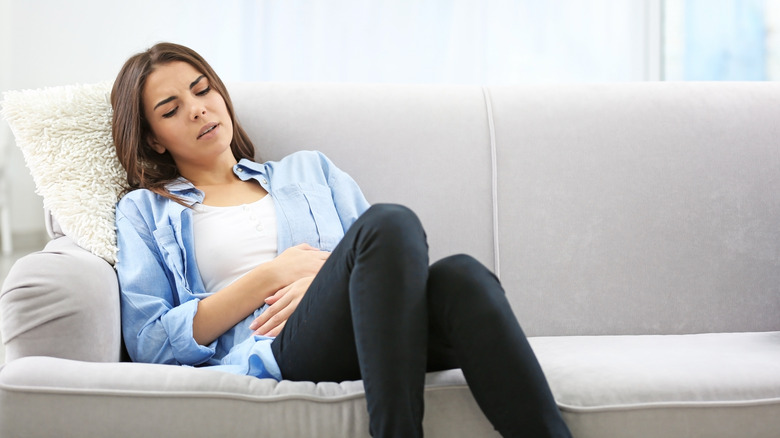The Real Reason You Gain Weight When You're On Your Period
As many women can attest, the days leading up to their periods and the first couple of days during their periods can be a tough time each month. In addition to PMS symptoms like cramps and headaches, weight gain and bloating are also common. But why does this happen? It's more complicated than simply craving more chocolate or other high-calorie treats during that time of the month.
When you get close to the start of your period, your body naturally retains more water as a result of progesterone levels naturally lowering. Raquel Dardik, M.D., a gynecologist at NYU Langone Medical Center, told Shape that weight gain caused by these hormonal fluctuations can begin five days before your period starts, but it's completely natural — and it will go away. She adds that this water retention can cause weight gain from half a pound to up to 10 pounds, depending on who you are. If you tend to crave salty snacks around this time, you might be even more prone to retaining water thanks to the extra sodium, but again, it will go away.
Is water retention the only reason for weight gain during your period?
During this time, you may also be bloated or constipated. "The progesterone can slow down your normal gut motility and result in constipation," Kathleen Borchardt, M.D., an ob-gyn at Houston Methodist, explains to Women's Health. Ensuring that your diet is rich in fiber and that you're drinking plenty of water during this time can help ease these symptoms, as can taking a probiotic regularly.
And of course, the cravings that come from PMS can also add to the weight gain issues, as can a lack of activity if you're someone who hates hitting the gym during that time of the month due to cramps or fatigue. However, exercise can help decrease the weight gain since you'll be able to sweat out some of that extra water, and you'll likely have better digestion if you get up and head out for a walk (via Healthline). You may not feel like moving much or eating healthy during this time, but you will feel better the better you treat your body. However, if you do experience severe PMS symptoms or your weight fluctuates in a big way throughout the month, consult with your doctor or gynecologist.


